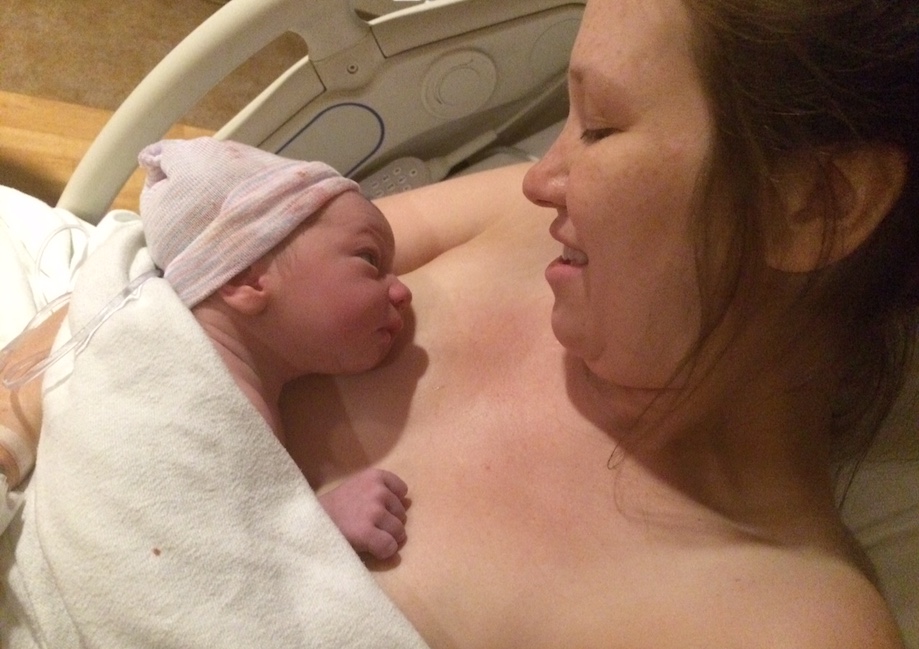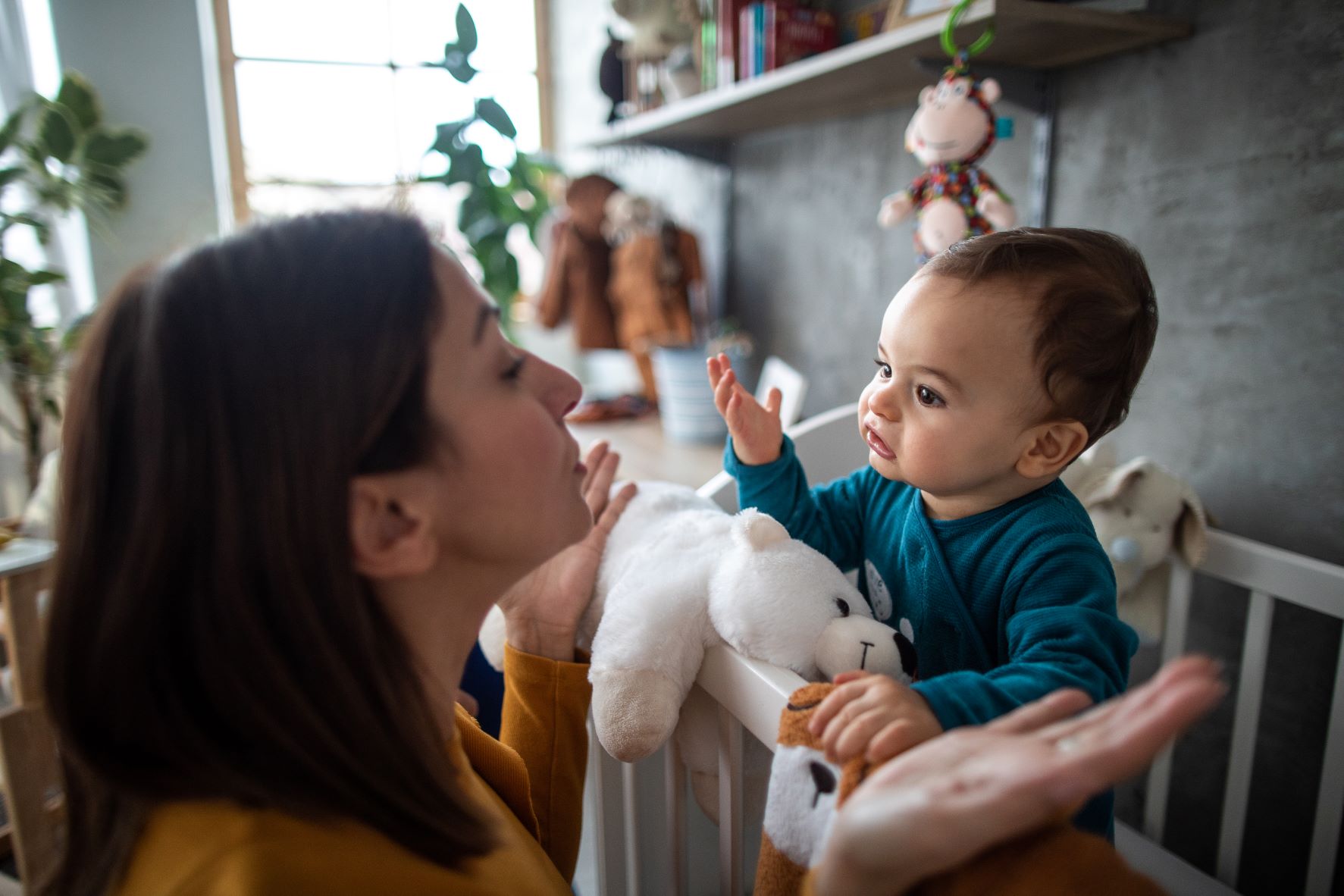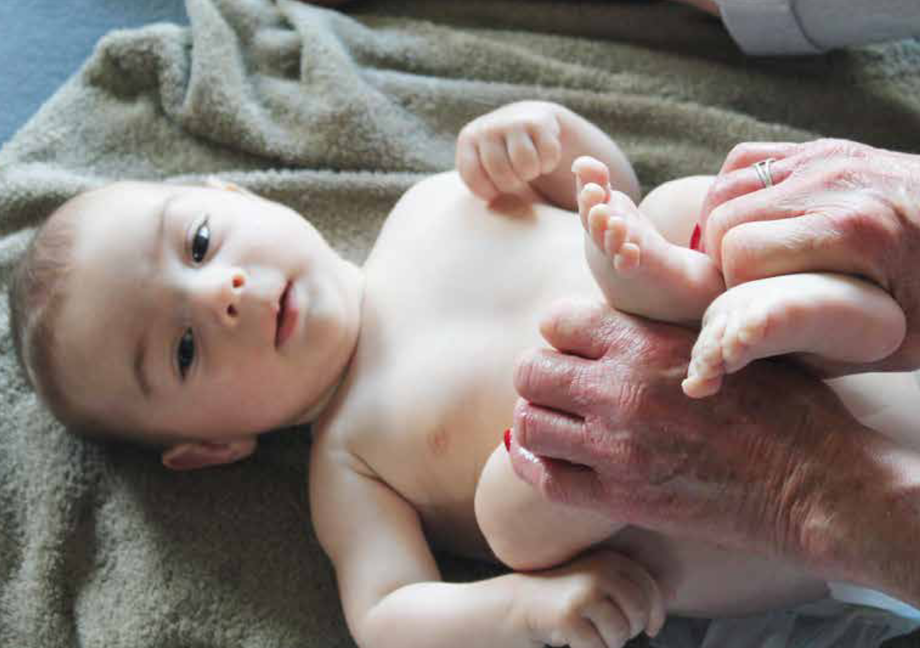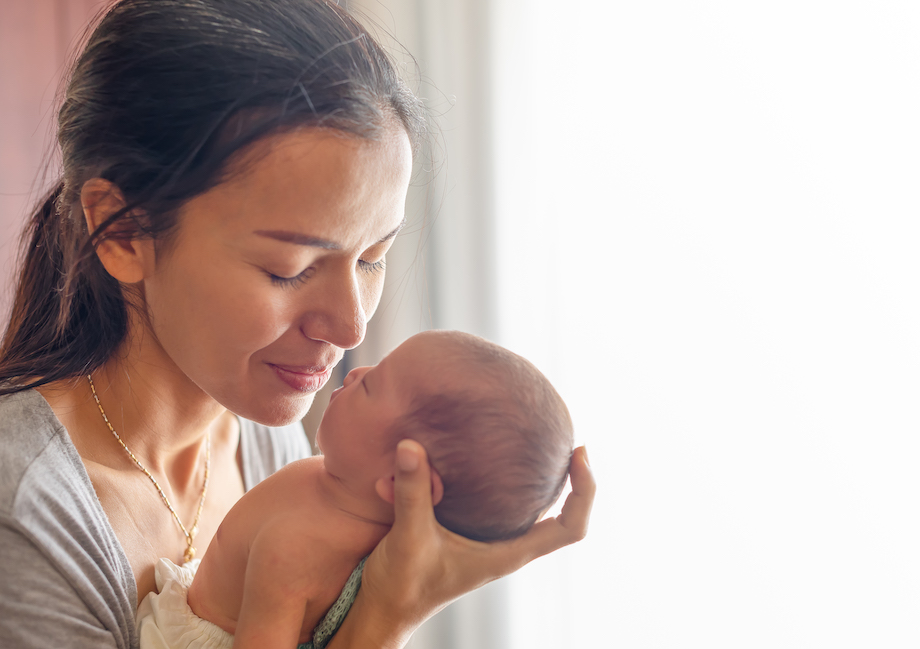
The first 1,000 days of a child’s life can shape the kind of grown-up they turn into, so what are the most important things parents can do to give their child the best possible start?
Interview with infant and child development expert Nathan Wallis
Nathan’s first bit of advice to mums is look after yourself when you’re pregnant. “You want baby to be so blissed out and relaxed that they don’t have to worry about too much. Instead baby can put their energy into becoming a thinker. And that’s when you lay the foundation for intellect and empathy and other tools to adult well.”
What happens in baby’s brain?
The human brain is amazing. From the first few days of conception our brains begin to form from cell tissue. As the fetus develops, layers of neurons in the brain start to develop. They send out axons to meet each other and become connected – then start to communicate with each other. As baby grows this process continues, and from the moment of birth, experiences interact with our genes to switch on new connections in the brain. Thousands of connections occur as baby develops synapses in response to their new environment. Each different sensory experience modifies the thousands of surrounding neurons and this is how our baby’s brain becomes wired.
The quality and types of experiences we have in those precious early years lay the foundations for later development and health. Nathan says a close attachment to a consistent caregiver is absolutely vital. “The connections that occur with a healthy attachment relationship are best made within the first 1,000 days. If this doesn’t happen, there are more likely to be problems in many areas in later life as the child grows up unable to establish firm trusting relationships.”
Lack of early attachment has been shown to lead to poor social competency, more difficulty learning at school and worse outcomes in teenage years. But, when a child is nurtured, played with, sung to, cuddled and lovingly stimulated, they are programmed positively. This sets a child up for life. If their experiences are negative, then the hardwiring that takes place retains all that negativity including the emotional memory of those experiences.
“When baby is born, they are hardwired to immediately look for their primary caregiver,” explains Nathan. “Their optimum focal point is 30cm – the distance from their eyes to the eyes of the adult holding them. From the last trimester, baby will recognise their mother’s voice and the voices they hear often from within the womb, so talk to baby as soon as they are born – your voice will be familiar.”
Touch is the first sense to come on line, so holding baby and stroking them is a powerful form of communication. This close relationship forged at the time of birth sets the blueprint for all future relationships – so be responsive and pile love all over your new baby.
“Trust your own intuition and learn to listen to your baby. If something feels bad – don’t do it. If it distresses you to let your baby cry, pick them up. No one knows your baby better than you.”
Nathan stresses that, to a baby, the outside world doesn’t matter – their parents are their world.”Your face, voice and touch mean more to them than anything else,” he says. “The more secure this relationship is, the better the outcomes are for your child.”
Smother them in love
As your baby grows into a full-on toddler, encourage independent thinking and don’t obsess over cramming facts. “Smother them in love,” Nathan says. “And encourage them to think for themselves. Try not to stress too much and enjoy this time – it doesn’t last very long.”
Some of the behaviours that could be seen as ‘difficult’ in babies and young children – not sleeping through the night, being easily distracted and disruptive at times – can be the very things that give them an edge as an adult.”
Nathan also believes that parents shouldn’t buy in to the myth of perfection. “No one is perfect, in fact it is our imperfections that make us interesting. If you have friends or online acquaintances who project a constantly unrealistic image, get new friends and follow people who know how to keep it real. Surround yourself with good people who will support you and build you up.”
Remember your oxygen mask
Nathan suggests new parents should keep in mind the safety briefing rules when you fly: “In an emergency, you are told to always fit your own oxygen mask first before looking after others. This applies to parenting as well. If you have not taken care of yourself, you will not be in a good state to look after your family. Self-care is very important to be able to parent well.”
Nathan’s top parenting tips
- First and foremost, simply enjoy your baby.
- The relationship between you and your baby represents 99% of their development
- You are the number one world expert on your baby
- Spend as much time in face-to-face interaction with your baby as they can tolerate
- Don’t sacrifice your well-being for your baby, take care of yourself.
Article by Leigh Bredenkamp





